Launch of SAA's Nutrition-Sensitive Agriculture Model Villages in Ethiopia
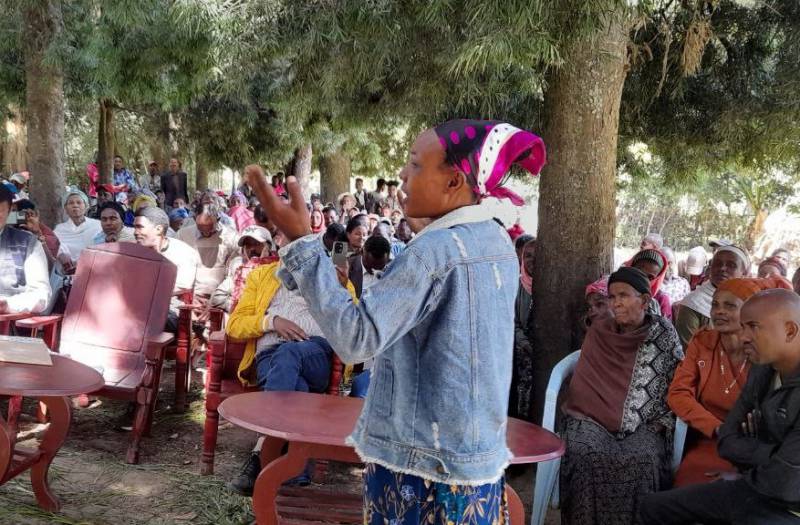
The Sasakawa Africa Association (SAA) has recently celebrated the inauguration of two Nutrition-Sensitive Agriculture Model Villages (NSA-MVs) in Angacha in the SNNP region and Ana Sora District in Oromia region. These villages are set to become exemplary sites where comprehensive nutrition-sensitive agriculture concepts and practices are implemented. This initiative aims to create an ideal environment for sharing and learning about NSA, encompassing all elements of food security such as availability, accessibility, utilization, and stability to ensure a nutritious diet in the community. This project is a collaborative effort with the Food and Nutrition Office (FNO) of the Ministry of Agriculture (MoA), marking advancement in our dedication to sustainable agriculture and nutrition.
SAA, in partnership with MoA-FNO, is focused on guiding the NSA-MVs to meet their targeted criteria for graduation by the end of 2025. Initiatives since 2022 have included the development of permaculture gardens and providing training in Regenerative Agriculture (RA), agro-processing and nutrition, and marketing skills as well as demonstrating postharvest technologies including thresher and hermetic grain storages such as PICs bags. Alongside these efforts, SAA will also engage in joint planning, implementation and monitoring with MoA-FNO to identify and address any developmental gaps, ensuring a consistent and inclusive approach towards the success and self-sufficiency of the NSA-MVs.
High-Level Participation and Acknowledgments
The launch events took place in Kerekicho kebele Wangrame village in Angacha on December 2, 2023, and in R. Boda kebele Haroharusi Hula Hanku village in Ana Sora on December 12, 2023. These events were honored by the presence of distinguished guests, including the head of MoA-FNO, officials from Central Ethiopia and Oromia regions, and representatives from the Kembata and Guji zones. Additionally, key personnel from the districts' agriculture, health, water, women, and children affairs offices were present, demonstrating broad support for this initiative.
Prominent speakers like Ms. Alemtsehay Sergawi, the MoA-FNO head, and Mrs. Shemsiya Kayo, the Director of the Food and Nutrition Directorate of the Oromia Agriculture Bureau, praised the Model Villages. They underscored the commitment of their respective offices to actively support and collaborate with SAA, ensuring that the villages meet the NSA-MV criteria.
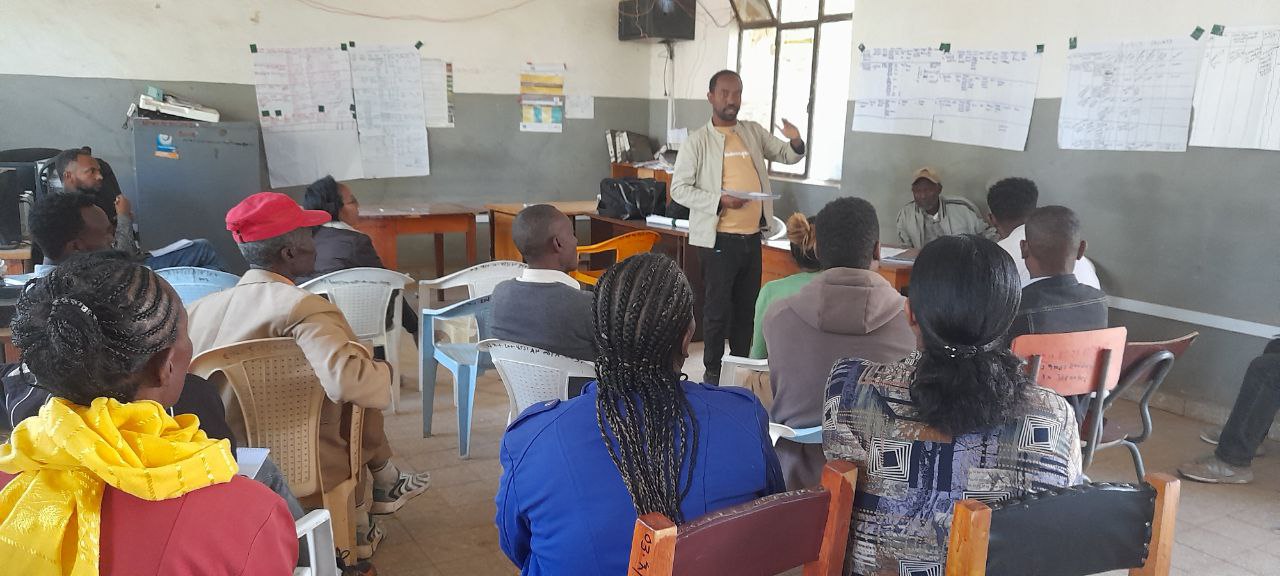 Group work presentations-planning for NSA model village in Kerekicho
Group work presentations-planning for NSA model village in KerekichoCriteria for NSA Model Village Certification
A village will be certified as an NSA Model Village upon meeting specific criteria, including:
- Every household (HH) understanding the six food groups
- Homestead production of fruits, vegetables, poultry/small animal rearing, and pulses in every HH
- Consumption of at least four of the six food groups by HH members, including one animal-based diet
- Measurable improvement in household dietary diversity (HH DD)
- At least one water point for homestead production in every HH
- Use of at least one bio-fortified crop by every HH
- Recommended agrochemicals usage for agricultural production by every HH
- Assignment of a multidisciplinary team for supporting the NSA Model village in each woreda and kebele
- Arranged financial resource for the NSA model village
- Use of ICT for communication, including video-based teaching
- Adoption of at least one postharvest handling and processing technology
- Participation in experience sharing, such as cooking demonstrations
- Elimination of mal traditional beliefs on diets (food taboos)*1
Emphasis on Social and Behavioral Change
Ms. Sergawi highlighted the integration of Social and Behavioral Change (SBC) interventions, stressing the need for improvements in residential areas, particularly advocating for the separation of cattle from areas used for dining, cooking, and sleeping. This focus on SBC interventions is in line with SAA's broader objectives of promoting sustainable and healthy community practices.
Inclusive Participation and Expert Involvement
The launch events witnessed impressive participation, with 510 attendees, including 200 females, showcasing the inclusive nature of this initiative. The planning process benefited from the input of 52 experts, 14 of whom were women, reflecting SAA's commitment to gender inclusivity and expert-driven approaches.
In conclusion, the launch of the Nutrition-Sensitive Agriculture – Model Villages in Ethiopia is a landmark step towards achieving sustainable agriculture and improved nutrition, setting a precedent for future initiatives in the region.
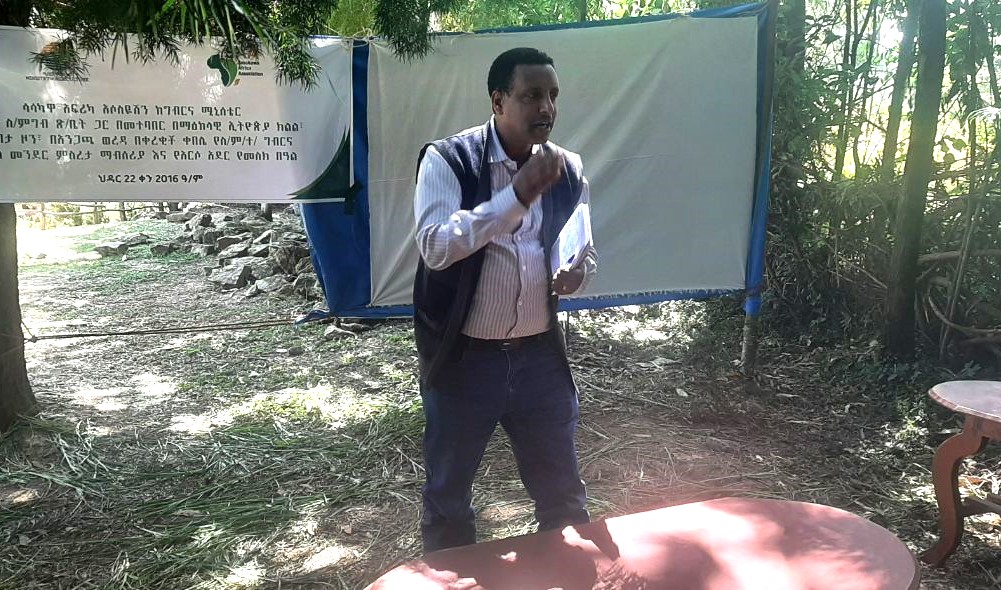 Dr. Berhanu, DCD giving his remarks-Kerekicho NSA model launch
Dr. Berhanu, DCD giving his remarks-Kerekicho NSA model launch*1: Standard Guidelines for Establishment of Nutrition-Sensitive Agriculture Model Village, Ministry of Agriculture, 2021
SAA Publications
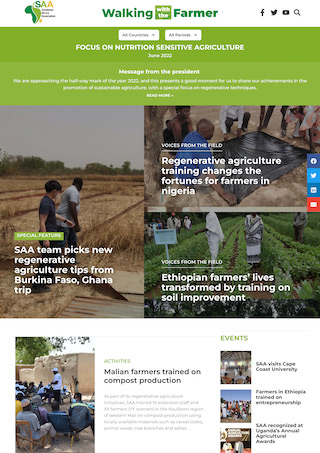
E-newsletter
"Walking with the Farmer"
SAA publishes a bimonthly e-newsletter reporting on SAA activities.
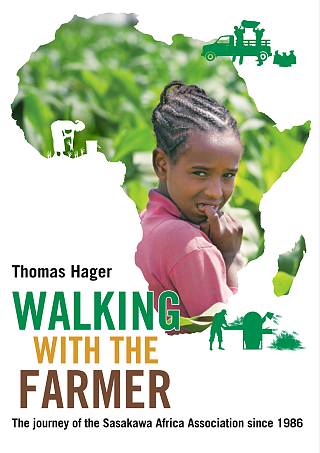
SAA history book
"Walking with the Farmer: The journey of the Sasakawa Africa Assoication since 1986"
This book chronicles the history of SAA from its inception to the present.

Annual Report
Annual Report FY2023
Annual Report FY2023 is available here.





